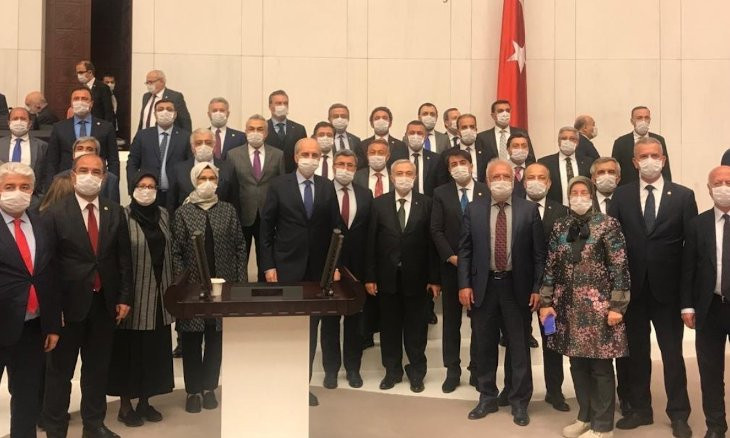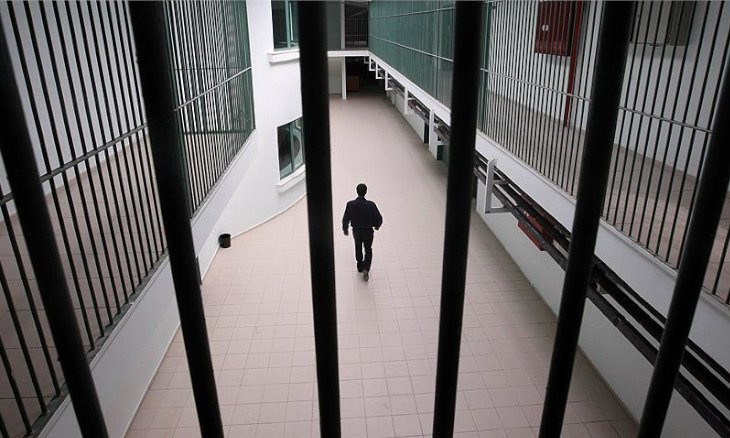Main opposition CHP challenges new prisoner release law in Constitutional Court
Turkey's main opposition CHP has made an application with the Constitutional Court for the annulment of the newly enacted prisoner release law – in regards to the law's form. The CHP says that the legal amendment is a “covert special amnesty,” which is why it requires the approval of at least three fifths of lawmakers in the parliament. In the upcoming days, the party will file a second application with the Constitutional Court in regards to the new law's substance, arguing that it is against the principle of equality for its exclusion of political prisoners.
Nergis Demirkaya / Duvar
The main opposition Republican People’s Party (CHP) has challenged the new prisoner release law in Turkey’s Constitutional Court -- in regards to its form.
The new law is not a “penal reform,” as referred to by the ruling Justice and Development Party (AKP), but instead a “covert special amnesty,” the CHP argues. And such a law needs to be ratified with the decision of at least three fifths of lawmakers in the parliament, in line with the Article 87th of the Constitution, says the CHP.
 Turkish parliament passes bill to release thousands from prison, leaves journalists, politicians out
Turkish parliament passes bill to release thousands from prison, leaves journalists, politicians outIn the upcoming days, the party will file a second application in the Constitution Court in regards to the new law's substance. The CHP says that the law is against the principle of equality as it excludes prisoners who are jailed for their political opinions.
The AKP has been so far very careful not to name the legal amendment as “amnesty,” because if the Constitutional Court accepts the CHP's challenge regarding the form of the law and agrees that it is an “amnesty,” then the previous voting in the parliament will be declared void.
The AKP and its ally Nationalist Movement Party (MHP) hold a majority of 340 seats in the 600-seat assembly, which is how the early parole bill passed. However, with a new vote, there is a risk of the bill not passing.
It is possible to challenge a law in the Constitutional Court in terms of its form within 10 days after it comes into effect. The legal amendment which paved the way for the release of about 90,000 prisoners was ratified in the parliament on April 14 and came into effect a day later on April 15. Therefore, the CHP had until April 25 to challenge the law in terms of its form. But the party filed its application on April 22.
 Main opposition CHP to take prisoner release law to Constitutional Court
Main opposition CHP to take prisoner release law to Constitutional CourtAs for the application concerning the law's substance (content), the CHP has 60 days to file its appeal. But, the party is expected to make this application in 15-20 days.
Thelegal amendment supported by the AKP and MHP halved the sentenceissued to inmates, except for those behind bars over charges relatedto terrorism, drugs, violence against women and children, sexualabuse and deliberate murder.
The government has been criticized many times for misusing the charge of terrorism for its political ends. Jailed human rights activists, journalists and opposition politicians are therefore not among the 90,000 prisoners considered for early release with the new law.
AKP group deputy chairperson Bülent Turan wrote on social media that the CHP's expected appeal has a risk of extending the law to all prisoners, including those serving behind bars for charges such as sexual abuse and deliberate murder.
“We are of course not surprised at the CHP's taking the law on execution of sentences to the Constitutional Court! But, this appeal only raises the issue of the extension of the red lines (terror, drugs, sexual abuse, etc.) and their inclusion in the law,” Turan wrote on Twitter on April 17.
CHPdeputy chairperson Muharrem Erkek said that their proposal onlycovers prisoners who are “sentenced for their thoughts.”
“The CHP is taking an action knowing what it is doing. We have put forward our red lines in the beginning. Politicians, journalists and lawyers are inside. Prisoners of thought and journalists should be freed. When the Constitutional Court is analyzing our appeal, they will also look at the parliamentary minutes and see what we said,” Erkek said.
